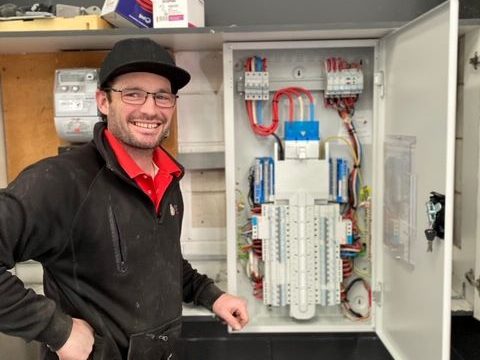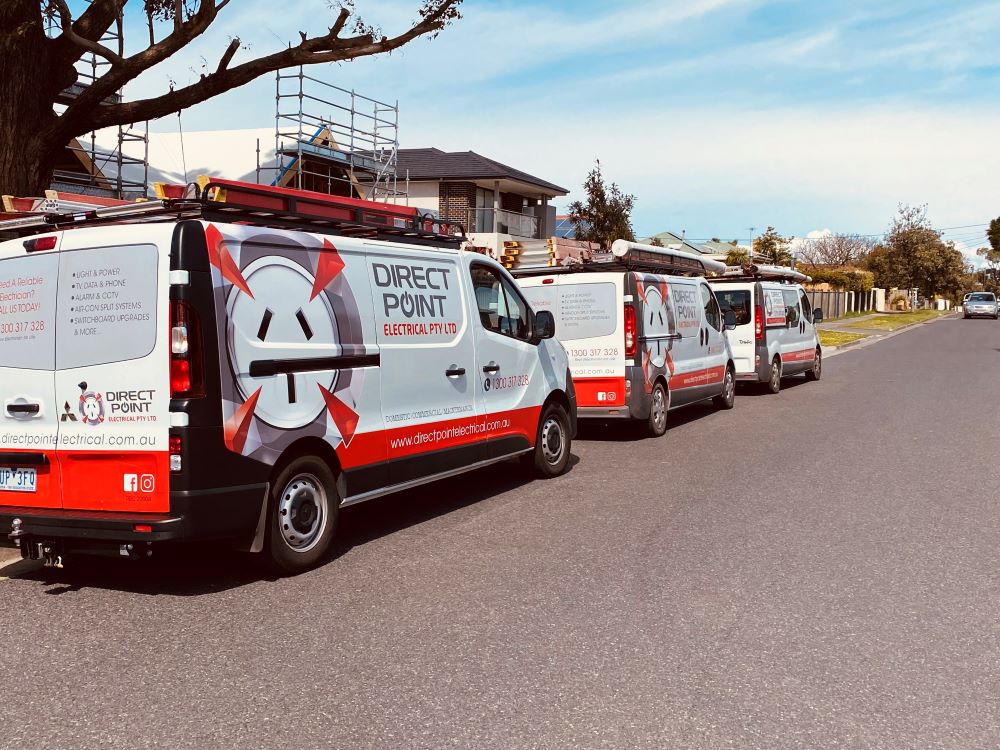Discover the Critical Role of Comprehensive Electrical Safety Inspections in Protecting Your Home
An electrical safety inspection serves as a detailed assessment of your home's wiring, switchboard, outlets, and safety devices. This essential evaluation ensures compliance with the Australian Standard AS/NZS 3000 while identifying potential risks, such as overloaded circuits, faulty wiring, or missing safety switches. Performed by qualified electricians, these inspections are crucial for preventing hazards like electric shock, catastrophic fires, and damage to your valuable appliances, providing a secure living environment for you and your loved ones.

Why Every Homeowner Should Prioritize Regular Electrical Safety Inspections
Many homeowners mistakenly assume that their home’s electrical system is functioning optimally until a significant problem arises. However, how can you confidently ascertain that your wiring is not deteriorating behind the walls? Are you assured that your switchboard isn't malfunctioning or overheating? Regular electrical safety inspections are not only precautionary measures; they are essential, especially in older neighborhoods like Narre Warren and Rowville. Given that many homes in these areas are over 40 years old, their original switchboards may be outdated and in need of replacement. Whether you are buying, selling, renovating, or simply haven't had an inspection in years, understanding the process and significance of these inspections is vital for safeguarding your home.
In-Depth Examination of What an Electrical Safety Inspection Entails
An electrical safety inspection involves a comprehensive evaluation of your property’s entire electrical infrastructure. A certified electrician will thoroughly examine the condition, compliance, and functionality of:
- Wiring and cable insulation for safety and efficiency
- Power outlets and light switches for proper functionality
- Switchboard and circuit breakers for operational integrity
- Residual Current Devices (RCDs) or safety switches to prevent electrical hazards
- Earthing and bonding systems to ensure electrical safety
- Appliance connections and load capacity for optimal performance
- Smoke alarm wiring (if hardwired) for fire safety compliance
- External weatherproofing of outdoor circuits to withstand environmental elements
At Direct Point Electrical, we diligently follow all relevant legislation and guidelines, including the AS/NZS 3000:2018 Wiring Rules, Energy Safe Victoria regulations, and Victorian Rental Tenancy Regulations, ensuring that your home meets the latest safety standards and remains compliant.
Why Electrical Inspections are Imperative for Older Homes
Properties built before 1990 often employed outdated wiring methods, including rubber-insulated or aluminium cabling. Such materials can deteriorate over time, particularly in areas exposed to heat or moisture. If your home has not undergone rewiring or an inspection in over 20 years, it is imperative to schedule a safety inspection. We frequently encounter severe issues, such as:
- Non-earthed outlets that pose shock risks
- Oversized fuses that can lead to electrical fires
- Lack of smoke alarms that can endanger lives
- Circuits without RCDs that fail to protect against electrocution
- Undersized cabling for modern electrical requirements
These issues present significant dangers that can jeopardize both your home and personal safety, highlighting the urgent need for timely inspections to resolve these problems before they escalate into more serious concerns.
When is the Best Time to Schedule Your Electrical Safety Inspection?
- Before purchasing or selling a property: Often required by lenders and a prudent measure for due diligence.
- Prior to renovations or significant appliance upgrades: Ensuring electrical safety is critical before any modifications to prevent future complications.
- After experiencing flood, storm, or fire damage: Prompt inspections are crucial to identify any new hazards that may have developed.
- If your home is over 25 years old: Regular evaluations are essential for older properties to maintain safety.
- As a landlord, during the preparation of a rental property: Ensuring compliance and safety checks are paramount for tenant security.
Since March 2021, landlords in Victoria are required to conduct electrical safety checks every 2 years, in accordance with the Residential Tenancies Regulations 2021.
For further information, please visit: Victorian Government Consumer Affairs.
A Deep Dive into the Process of an Electrical Safety Inspection
Our licensed electricians conduct a meticulous walkthrough and evaluation of all accessible electrical systems, which includes:
- Testing every socket and switch for any faults
- Assessing polarity and voltage across all points to ensure safety
- Verifying the presence and effectiveness of RCDs to prevent electrical accidents
- Inspecting the switchboard layout, its protection, and proper labeling for compliance
- Utilizing thermal imaging to identify any overheating components (when necessary)
- Conducting earth loop impedance testing to ensure grounding is effective
- Documenting any illegal or DIY wiring that may exist
Upon completion of the inspection, you will receive a comprehensive written report detailing:
- Identified hazards that need immediate attention
- Compliance status with current regulations
- Urgent repair needs (if any)
- Recommended upgrades for improved safety
- Suggestions for enhancing overall safety
Additionally, we provide a Certificate of Electrical Safety (COES) for any rectification work carried out during the inspection, giving you assurance regarding the safety of your electrical systems.
What to Do If Your Home Fails the Electrical Safety Inspection
There is no need to panic. Many homes we inspect only require minor improvements, such as installing an RCD, replacing a few worn outlets, or correcting an overloaded circuit. If we discover more significant issues (for instance, non-earthed wiring or an outdated switchboard), we will prioritize safety risks and provide you with a clear, fixed quote for any necessary repairs. For more details on how we manage updates, please visit our electrical services page.
Understanding the Time Commitment for Your Electrical Safety Inspection
The duration of most inspections typically ranges from 1.5 to 2.5 hours, depending on the size and accessibility of your property. If you reside in a double-storey or split-level home, or if you have extensive outdoor power systems, the inspection time may vary slightly to ensure a comprehensive evaluation is performed.
The Financial Advantages of Scheduling Your Electrical Safety Inspection
Indeed, failing to identify issues such as leaking current, loose neutral connections, or improperly loaded circuits can lead to significant consequences, including:
- Escalating power bills due to inefficiencies
- Reduced lifespan of your appliances leading to costly replacements
- Risk of expensive repairs if problems go unnoticed
Moreover, identifying faults early shields you from potential financial strains and legal consequences tied to an electrical fire or injury claims, particularly if you are a landlord with tenants.
Common Inquiries Regarding Electrical Safety Inspections
What sets a safety inspection apart from an energy audit?
A safety inspection is focused on detecting hazards and ensuring adherence to safety codes, while an energy audit assesses efficiency and provides recommendations to reduce energy consumption.
Should I switch off the power during the inspection?
It is not always necessary to turn off the power. Some tests may require brief disconnections, but the majority of the inspection can be performed with the power on, ensuring minimal disruption to your daily activities.
Will I face fines if I neglect safety checks?
If you are a landlord, the answer is yes. Under the Residential Tenancies Act, failing to conduct bi-annual safety checks can result in fines or complications with rental listings, which can be quite serious.
Is a safety inspection still required if I have solar panels?
Absolutely, a safety inspection is crucial. Solar systems include additional components that require testing, such as isolators, inverters, and export limits, all of which must meet safety standards.
Can DIY electrical work negatively impact my inspection?
Definitely. Any non-compliant or unlicensed modifications will need to be rectified before we can issue a safety clearance, making professional oversight essential to ensure compliance and safety.
Your Trusted Local Electrician for Thorough Electrical Safety Inspections
Investing in electrical safety inspections is one of the most crucial and economical protective measures you can take for your home. These inspections can prevent tragic incidents, and if your home is older, has recently undergone renovations, or has not been professionally inspected in years, now is the perfect time to take proactive steps to ensure safety.
Reach out to Direct Point Electrical today to schedule your professional inspection and ensure that your home's electrical safety is prioritized.
Reliable Local Electricians You Can Trust for Quality Service
Electrical Safety Inspections Explained: What Melbourne Homeowners Must Know
The Article: Electrical Safety Inspections: Essential Guide for Melbourne Homeowners first appeared on https://writebuff.com
The Article Essential Guide to Electrical Safety Inspections for Melbourne Homeowners Was Found On https://limitsofstrategy.com
The Article Electrical Safety Inspections: A Must for Melbourne Homeowners First Appeared ON
: https://ad4sc.com




